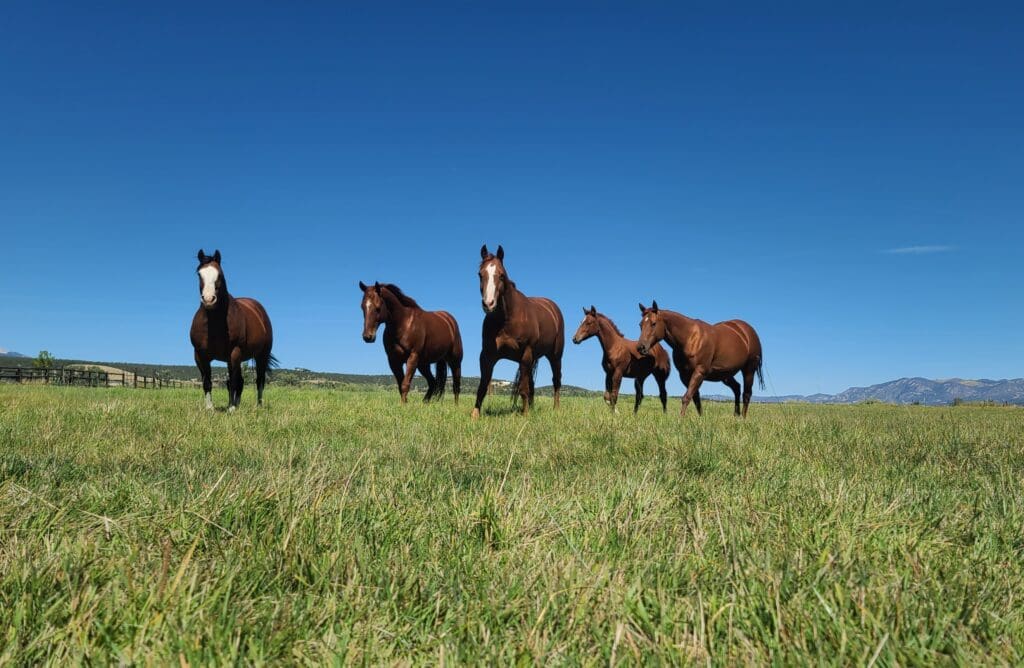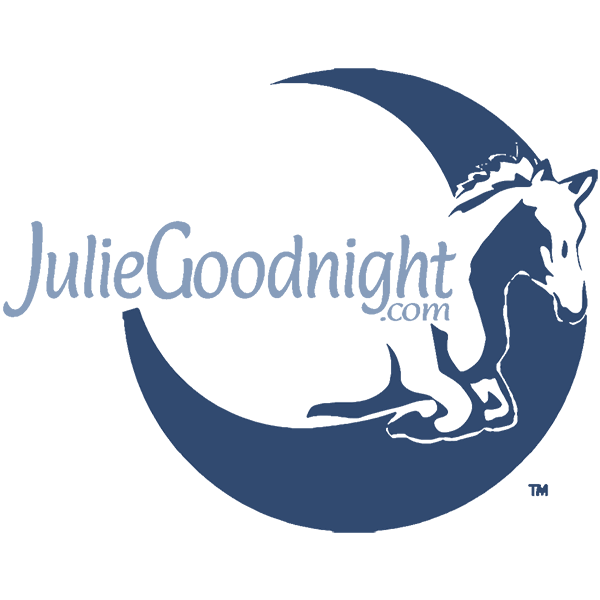
I’ll never grow tired of watching horses being horses. The little Ripster is now four months old, and life is very good. Rich and I take great delight in watching him learn to negotiate his world. He’s an endless source of entertainment and delight for us.
Rip is bored with mom now, but our three geldings give him plenty of attention. They run, they spar, they admonish him when he gets too frisky, and they faithfully stand guard over him when he naps in the field. Although Annie’s alarm bells are still easily triggered, she is starting to get farther away from him in the pasture and is no longer paranoid about his whereabouts.
Generally, foals are weaned between four and six months of age. Rip is certainly eating like a horse now and is not really reliant on mare’s milk for his sustenance. But nursing and having mom at his side is still very comforting and confidence building for him. I am certainly in no hurry to wean them, but there will come a day when we’ll need to separate them, at least long enough for Annie’s milk to dry up and for Rip to gain some independence.
In my experience, cold turkey, physical separation causes the least amount of stress when weaning. But the separation has to be complete—out of sight, out of ear shot. It would not be hard on Rip, since we’d leave him with the geldings, in the place he’s always been. But that would require me to take Annie away and leave her somewhere for a month, and I am not comfortable with that.
For now, I will leave them together as a herd. I might even leave them together over the winter, and let nature take its course. We’ll begin separating them at feed time, at first just physically (Annie in the stall and Rip right outside the stall where she can still see him). Then we’ll separate them physically and visually, starting with brief separation then gradually increasing the time and distance, as they get used to separation. At some point, I’ll start riding Annie again, which will further encourage their independence.
Meanwhile, I’ve been riding our next youngest horse, Tomcat. He’s five years old and although he has won money in the cutting pen, overall, he’s still pretty green. Even horses with a lot of training are still green at this age. They have skills but not enough life experience. They are sometimes a little more challenging and may not respond as reliably as an older horse. We often think of it as “not being set in their ways.” In other words, their behavior and responses are less fluent.
I talk to many horse owners who have acquired horses in the 4-6 year old range, either thinking they were ready for a younger horse or not realizing what ‘young’ is for a horse. Often these horses have a lot of training, but usually by expert riders. Sometimes they may appear ‘foolproof’ because they’ve been worked hard every day in a structured regimen, by riders who are exacting.
The problems may develop because the horse is still immature and needs regular riding and a steady hand. The horse was accustomed to exacting riders and a heavy workload. When the riders are less skilled and the work regimen softens, the “greeness” of the horse comes out quickly!
Rich bought his other gelding, Casper, as a six-year-old, and he’s worked his way through the green stage. Casper is 10 years old now, and he’s a reliable steed, even though they had some rough patches early on. Rich bought Tomcat as a four year old, knowing I would be riding him regularly (his personal in-house trainer).
I see this propensity for greeness with Tom, almost every time I ride him. He does little things, like pulling towards the gate or getting fussy when the other horses leave. It takes very little to correct him but it’s important that it’s addressed. Horses, particularly the younger ones, will push boundaries at times. That’s a given, not something that is “wrong” with the horse. It’s how you respond to the testing that’s important for their development. Consistency is always the key.
If you or someone you know is struggling with a green riding horse, there is a lot of information on my website that will help you! Check out the links below. I’ve got several students in my online coaching program that I am currently helping, who are working with younger or greener horses and need a little help, coaching, and a structured plan. A little information and support can go a long way!
